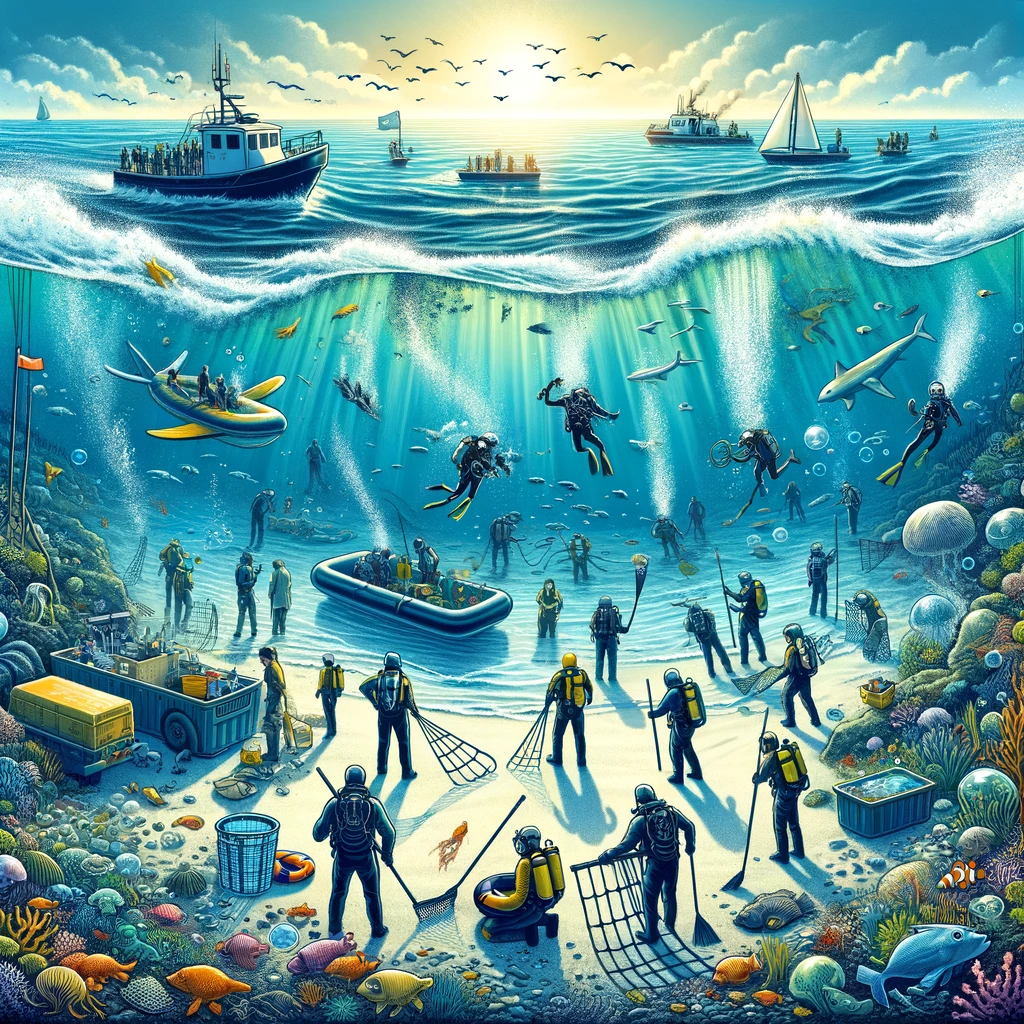
Marine conservation efforts and ocean cleanup initiatives have become increasingly critical as our oceans face mounting threats from pollution, habitat degradation, and climate change. This article aims to provide an informative and objective analysis of marine conservation efforts and ocean cleanup, exploring key factors, tradeoffs, challenges, and the importance of considering the impact on when making decisions about the topic.
Understanding Marine Conservation Efforts and Ocean Cleanup
Defining Marine Conservation
Marine conservation involves the protection and preservation of marine ecosystems, species, and habitats through various strategies and initiatives. These efforts aim to safeguard biodiversity, restore degraded ecosystems, and promote sustainable management practices to ensure the long-term health and resilience of our oceans.
Key Factors Impacting Marine Conservation and Ocean Cleanup
1. Plastic Pollution
Plastic pollution poses a significant threat to marine life, ecosystems, and human health. Single-use plastics, such as bottles, bags, and packaging, account for a significant portion of marine debris, entering the ocean through improper disposal, littering, and inadequate waste management practices. Marine conservation efforts and ocean cleanup initiatives focus on reducing plastic pollution through cleanup campaigns, waste management solutions, and policies to ban or regulate single-use plastics.
2. Habitat Destruction
Habitat destruction, including coral reef degradation, mangrove deforestation, and coastal development, threatens marine biodiversity and ecosystem health. Marine conservation efforts aim to protect and restore critical habitats through marine protected areas, habitat restoration projects, and sustainable coastal development practices that minimize environmental impact and preserve ecosystem services.
3. Overfishing and Illegal Fishing
Overfishing and illegal fishing practices deplete fish stocks, disrupt marine food webs, and undermine the sustainability of fisheries and coastal communities. Marine conservation efforts focus on implementing science-based fisheries management measures, combating illegal fishing activities through enforcement and surveillance, and promoting sustainable fishing practices that ensure the long-term viability of marine resources.
Tradeoffs and Challenges
1. Economic Development vs. Conservation
Balancing economic development with marine conservation objectives presents a significant challenge, particularly in coastal communities dependent on marine resources for livelihoods and economic growth. Tradeoffs may arise between conservation measures, such as marine protected areas or fishing quotas, and economic activities, such as fishing, tourism, or coastal development. Finding solutions that reconcile conservation goals with socioeconomic needs requires stakeholder engagement, adaptive management approaches, and sustainable development strategies that promote economic prosperity while safeguarding marine ecosystems.
2. Technological Solutions vs. Behavioral Change
Addressing marine pollution and ocean cleanup requires a combination of technological solutions and changes in human behavior. While innovative technologies, such as ocean cleanup systems and waste-to-energy facilities, can help remove marine debris and mitigate pollution, behavioral change initiatives, such as public education campaigns and community engagement, are essential for preventing pollution at its source and fostering sustainable consumption and waste management practices.
Challenges and Opportunities
1. Global Collaboration
Marine conservation and ocean cleanup efforts require international cooperation and collaboration to address transboundary challenges and protect shared marine resources. Initiatives such as the United Nations Sustainable Development Goals, regional marine conservation agreements, and multilateral partnerships facilitate coordination among governments, organizations, and stakeholders to promote marine conservation, sustainable fisheries management, and pollution prevention on a global scale.
2. Community Engagement
Engaging local communities and empowering stakeholders to participate in marine conservation and ocean cleanup efforts are essential for achieving lasting and meaningful results. Community-based initiatives, citizen science projects, and participatory decision-making processes enable local knowledge, expertise, and perspectives to inform conservation strategies, enhance social cohesion, and promote stewardship of marine resources at the grassroots level.
Conclusion
Marine conservation efforts and ocean cleanup initiatives play a crucial role in protecting and preserving the health and integrity of our oceans for future generations. By addressing key factors, tradeoffs, and challenges associated with marine conservation and ocean cleanup, we can work towards sustainable solutions that balance environmental protection with socioeconomic development, promote global collaboration, and empower communities to safeguard marine ecosystems and biodiversity for the benefit of all.

Alex Rivera
Alex RiveraAlex Rivera is a dedicated environmental writer and editor with a degree in Environmental Studies from the University of Northern Iowa. With over eight years in the field, Alex specializes in topics ranging from renewable energy and climate technology to sustainable living practices. Known for combining thorough research with personal experiences, Alex's work is both informative and relatable. Their commitment to promoting a healthier planet shines through in every article, making them a respected voice in environmental journalism.
